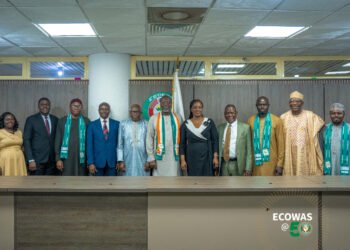The Monetary Policy Committee (MPC) of the Bank of Ghana (BoG) will hold its 103rd Regular Meetings from Tuesday, November 16, 2021 to Friday, November 19, 2021 to review developments in the economy.
The final MPC meetings for this year will conclude with a press conference on Monday, November 22, 2021 to announce the decision of the Committee. At the end of each MPC meeting, there are two possible outcomes; either the policy rate is maintained or changed. The committee’s decision however, hinges very much on the current economic conditions in the country.
The Central Bank of Ghana’s MPC meets every two months to review developments of the economy. So far this year, the MPC had met five times to review the development in the economy which is gradually recovering from the devastating effects of the pandemic. West Africa’s second largest economy recorded an anemic growth of 0.4% last year, derailing a strong growth trajectory of an average of 7% prior to the outbreak of the pandemic.
The MPC of the BoG met in January, March, May, July and September this year. In all but one of these meetings, the Central Bank kept the policy rate to ensure the economy remained on track in its recovery process.
Cut in the policy rate
In the 102nd Regular Meetings held between September 22 and September 24, 2021, the committee kept the policy rate at 13.5 percent after an unexpected cut earlier in May.
The MPC shockingly cut the policy rate by 100 basis points to 13.5 percent from 14.5 percent after its 100th Meetings in May 2021, the first time the BoG had reduced its policy rate in more than a year. The BoG cut its policy rate by 150 basis points in March last year as part of its monetary policy measures to cushion the economy which eventually suffered a technical recession in the second and third quarters of 2020.
The Committee’s recent cut of the policy rate in May was to Fast-track and consolidate the uptick of economic activity. The BoG continues to emphasize that its high frequency economic indicators are improving gradually, signaling a rebound of the economy which reflected in a 3.9% growth in Q2 2021.
The Monetary Policy Rate is of keen interest to businesses, as it determines the rate at which the BoG lends to commercial banks. More importantly, this rate is expected to influence the interest rate on loans offered to customers but has not been the case.
High cost of borrowing
Businesses keep complaining about how the policy rate does not often reflect the interest rate on loans as expected. The high cost of borrowing in the country continues to cripple businesses and that forced President Nana Akufo-Addo to charge the new board of the Bank of Ghana to interrogate the issue of high interest rates. The President tasked the Board to look for a solution to the problem to enhance the competitiveness of the private sector.
Dr. Ernest Addison, Governor of the Bank of Ghana, has assured that his outfit will be required to act on its policy rate decisions if it senses a higher risk of inflation which currently stands at 10.6% at End-September 2021. The BoG boss however, blamed the high interest rates partly on the government’s growing appetite for borrowing.
With a relatively stable exchange rate and promising growth prospects, the Committee may decide to maintain the policy rate at 13.5% till the end of the year, despite the risk of inflation.
READ ALSO: No link Between Academic Research And The Industrial Revolution Ghana Seeks, Economist




















